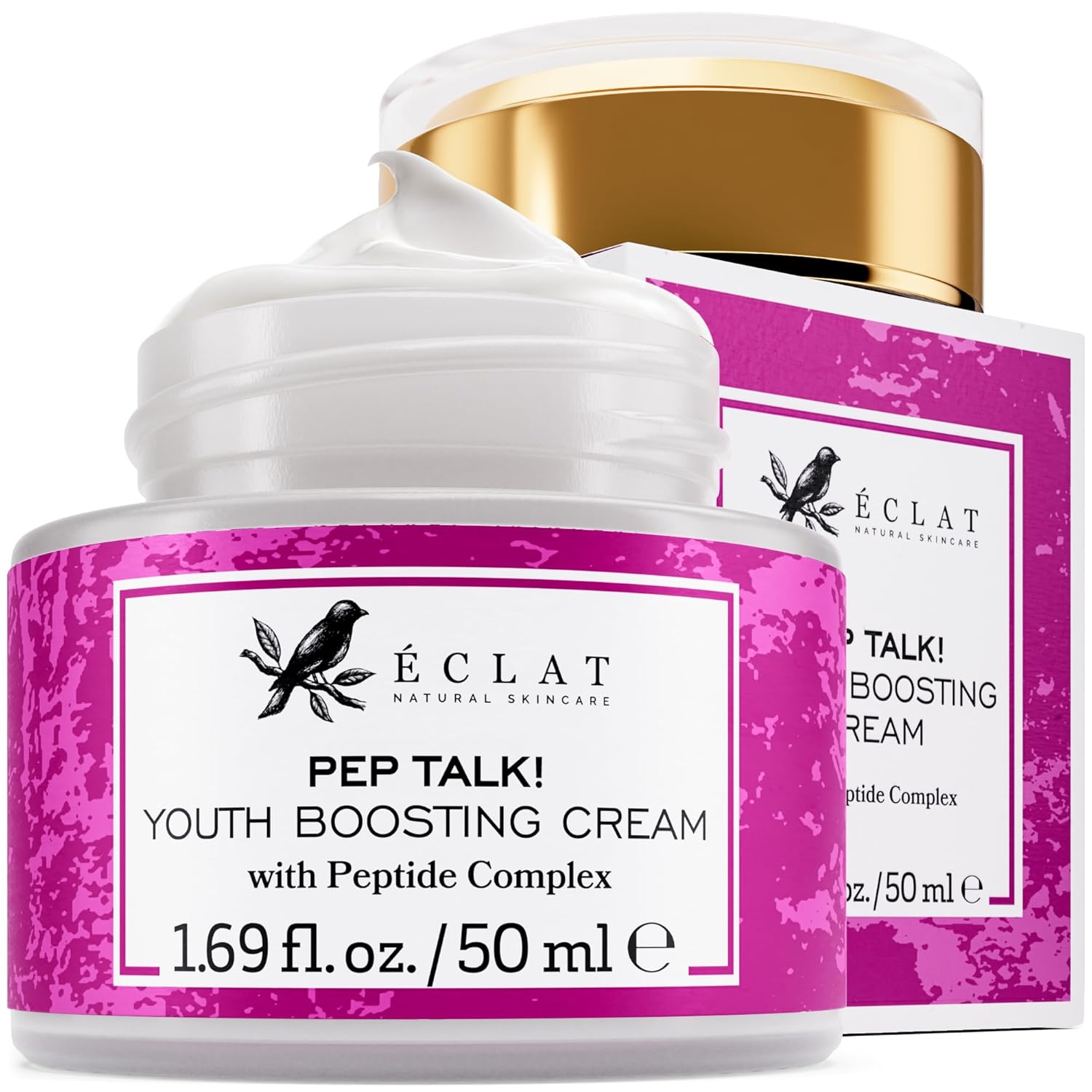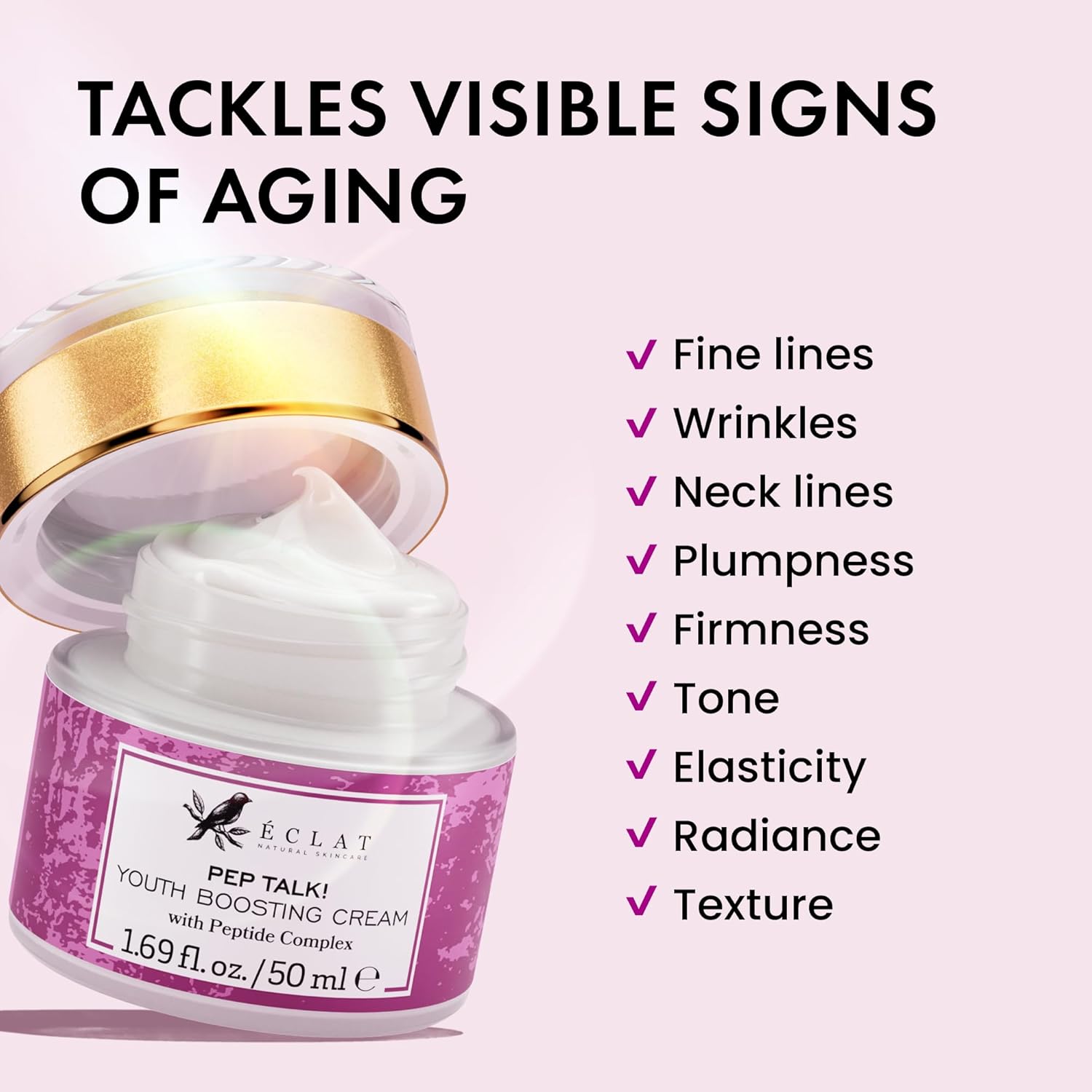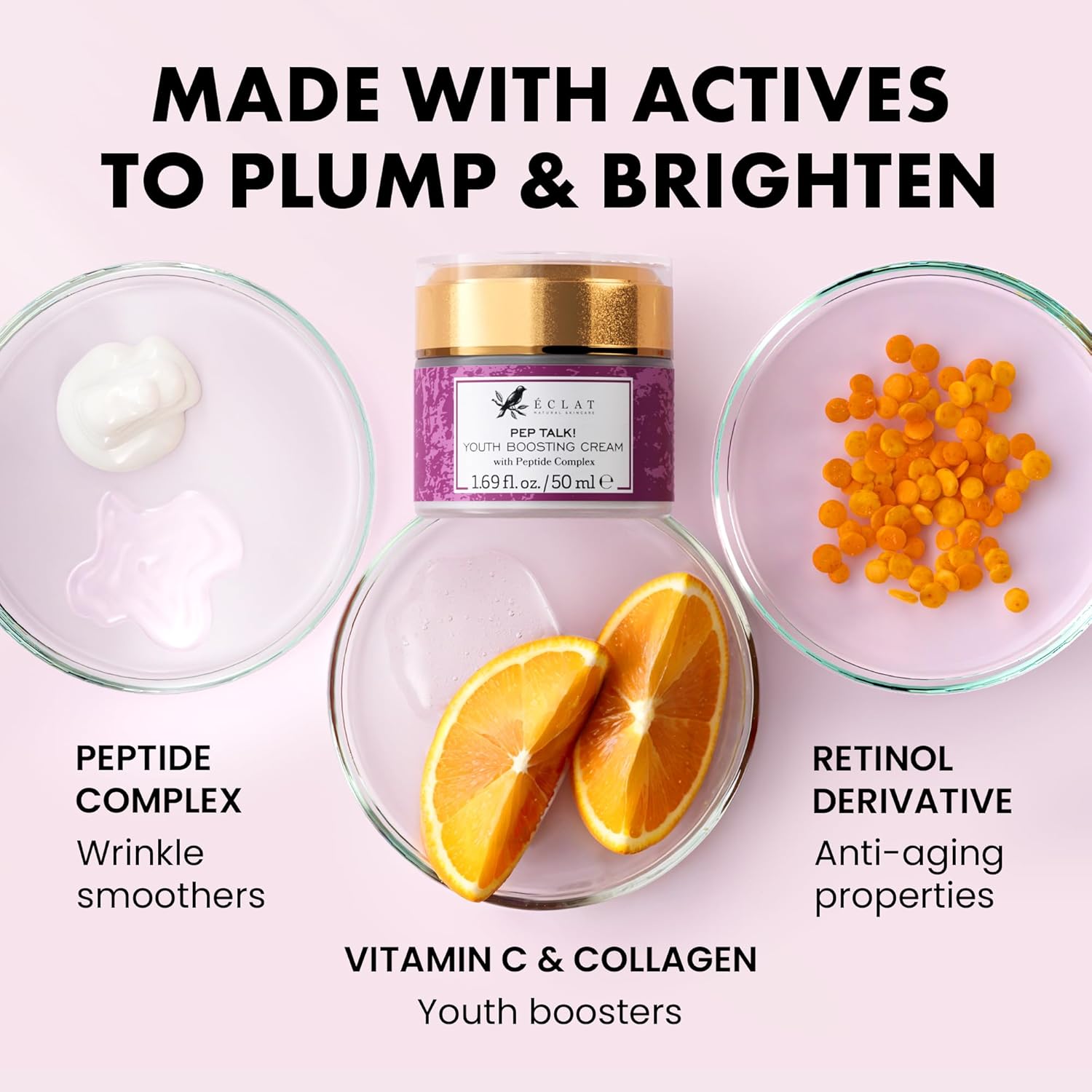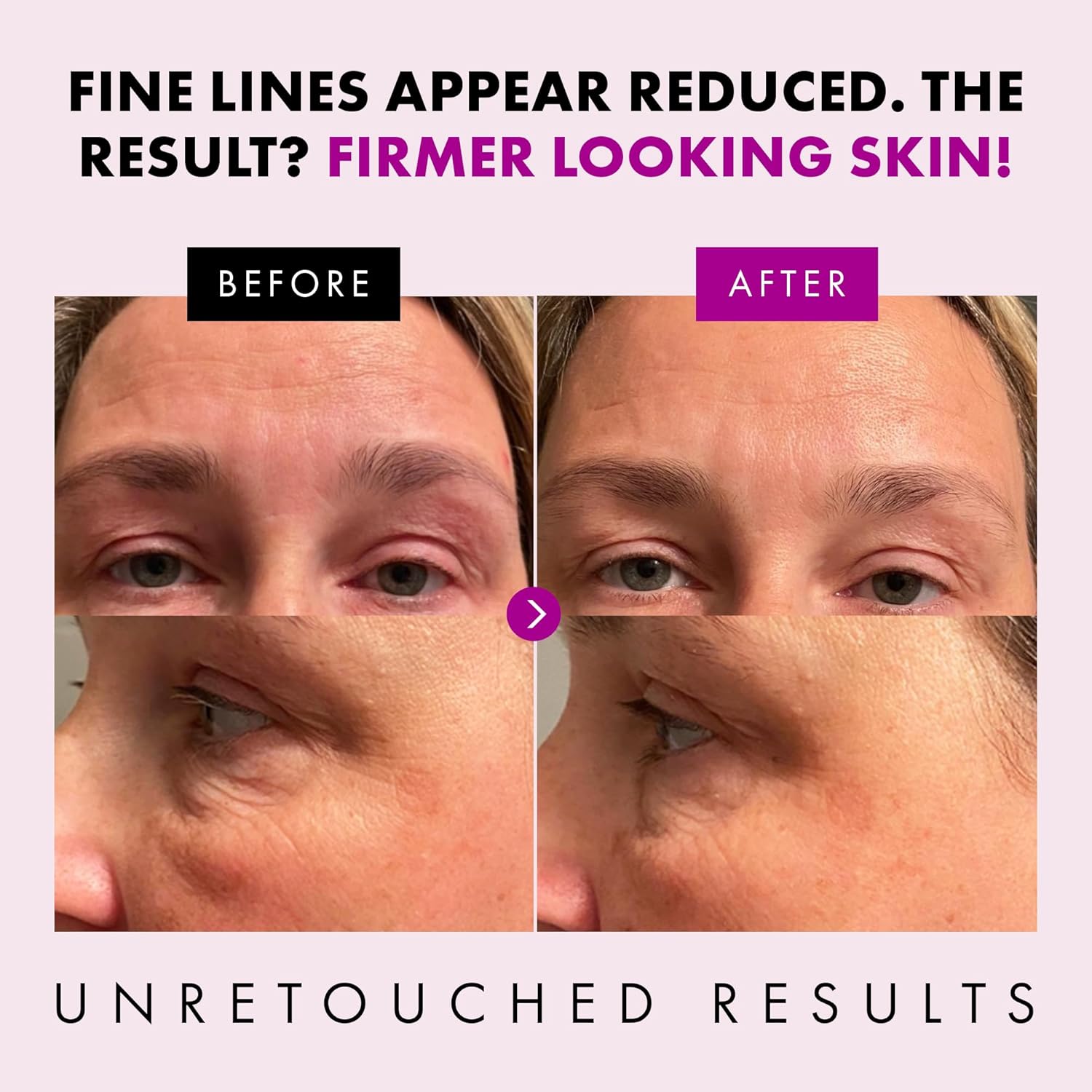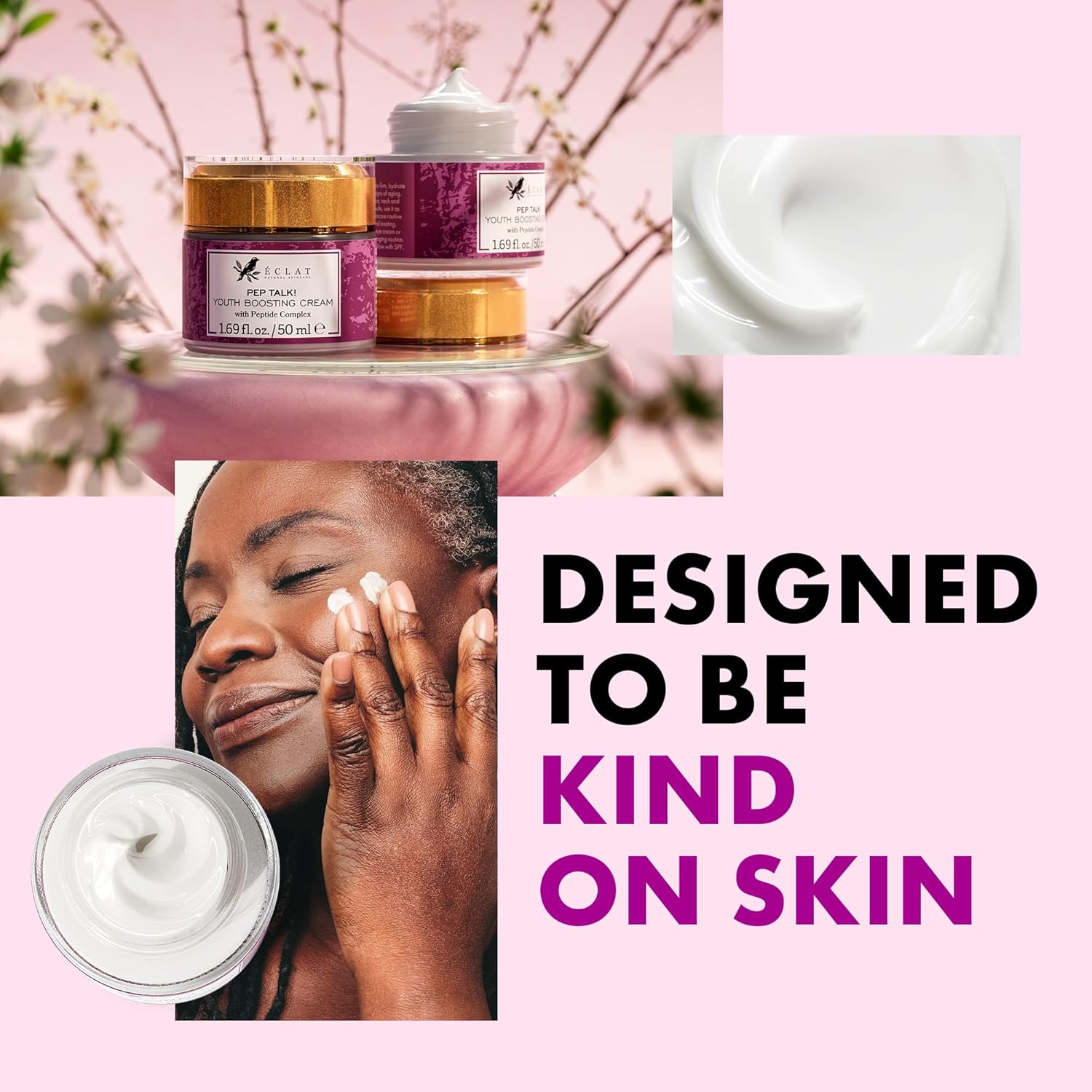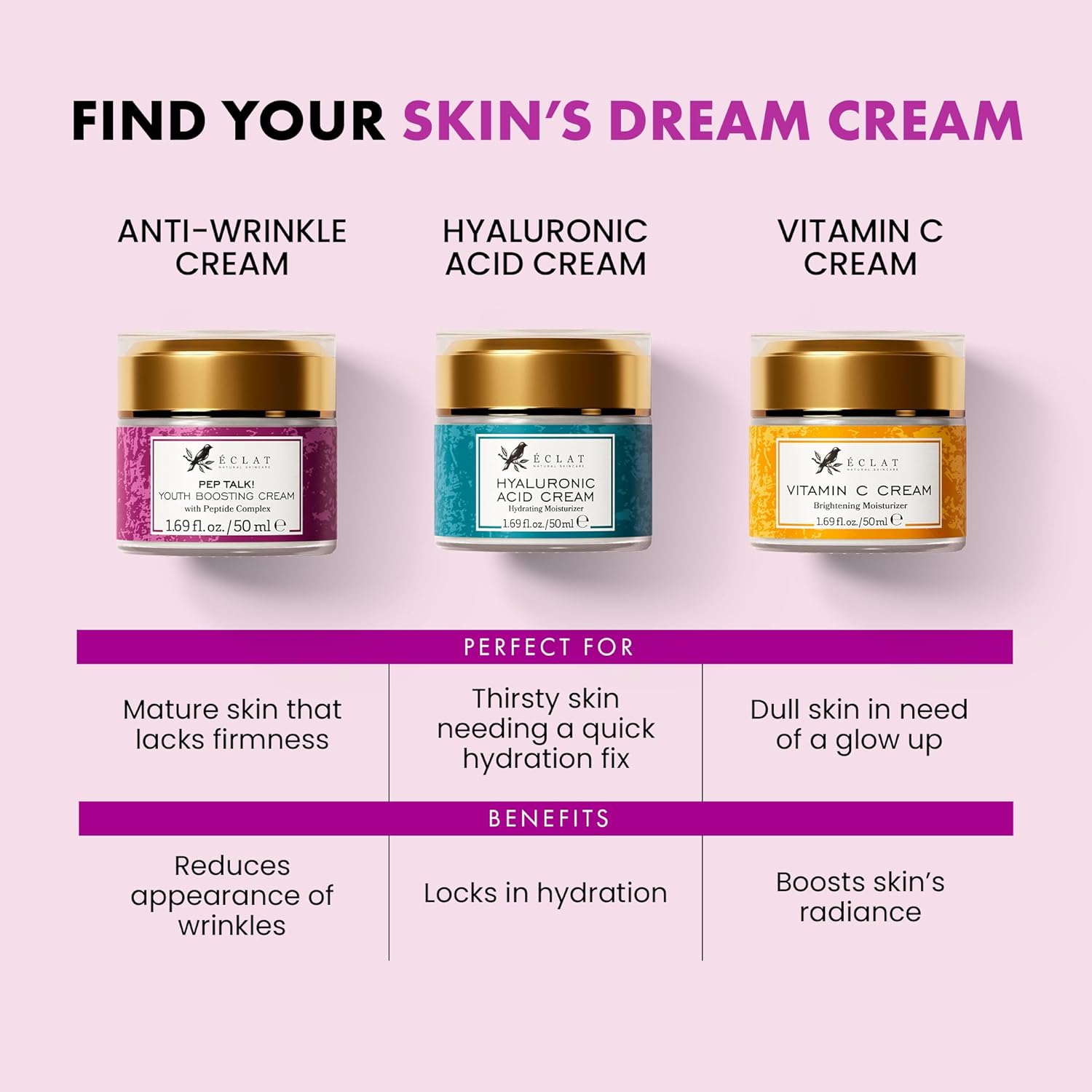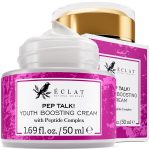
Collagen Anti Aging Face Cream with Review anti-aging cream Buying Guide – Oemiu
Collagen Anti-Aging Face Cream: A Comprehensive Review and Buying Guide
The quest for youthful, radiant skin is a timeless pursuit. In the vast landscape of skincare, collagen anti-aging face cream has emerged as a popular contender, promising to turn back the clock and diminish the visible signs of aging. But with countless products vying for attention, how do you discern genuine efficacy from clever marketing? This comprehensive guide delves into the world of collagen creams, exploring their benefits, dissecting their ingredients, offering a review, and providing expert advice to help you make an informed decision and choose the best anti-aging cream for your unique needs.
Understanding Collagen and Its Role in Skin Health
Collagen, the most abundant protein in our bodies, serves as the structural scaffolding of our skin, providing firmness, elasticity, and overall resilience. Think of it as the “glue” that holds everything together, preventing sagging and maintaining a youthful plumpness. As we age, however, collagen production naturally declines, typically starting in our mid-20s. This gradual reduction leads to the telltale signs of aging, including wrinkles, fine lines, and a loss of skin elasticity. Environmental factors such as sun exposure, pollution, and lifestyle choices like smoking can further accelerate collagen breakdown.
The diminished collagen levels cause the skin to become thinner and more susceptible to damage. The support network that once kept the skin firm begins to weaken, leading to a visible loss of volume and definition, particularly around the cheeks, jawline, and eyes. This is where collagen anti-aging creams come into play, aiming to replenish or stimulate the production of this vital protein, offering a potential solution to combat these age-related changes. The concept is that by providing the skin with building blocks or stimulating collagen synthesis, the visible signs of aging can be reduced, leading to a more youthful and rejuvenated appearance.
However, it’s important to understand that the effectiveness of topical collagen application is a complex topic. Collagen molecules are relatively large, making it difficult for them to penetrate the skin’s outer layer (epidermis) and reach the dermis, where collagen synthesis occurs. Many creams don’t actually deliver intact collagen molecules directly into the dermis. Instead, they often rely on ingredients that support collagen production or protect existing collagen from further degradation. These ingredients can include peptides, retinol, vitamin C, and antioxidants, all of which play a crucial role in maintaining skin health and supporting the body’s natural collagen synthesis processes. Therefore, understanding the mechanism of action of these creams and the ingredients they contain is vital for effective anti-aging skincare.
Furthermore, lifestyle factors play a crucial role in the overall effectiveness of any skincare regimen. A healthy diet rich in fruits, vegetables, and lean protein provides the necessary building blocks for collagen production. Adequate hydration helps maintain skin elasticity and plumpness. Protecting the skin from sun damage through the use of sunscreen is essential for preventing collagen breakdown. And finally, avoiding smoking and excessive alcohol consumption can minimize the harmful effects of free radicals on collagen fibers. The best anti-aging cream will be most effective when used in conjunction with a healthy lifestyle.
Decoding the Ingredients in Collagen Anti-Aging Creams
The effectiveness of any collagen anti-aging face cream hinges on its formulation and the specific ingredients it contains. While collagen itself is often listed, it’s usually present as hydrolyzed collagen or collagen peptides. These smaller fragments are more easily absorbed by the skin, though their direct impact on collagen production remains a subject of ongoing research. However, these smaller peptides can act as signaling molecules, stimulating fibroblasts (the cells responsible for collagen production) to produce more collagen.
Beyond collagen, a well-formulated cream will typically incorporate a range of other beneficial ingredients that work synergistically to combat aging. Some of the most common and effective ingredients to look for include:
- Peptides: Short chains of amino acids that act as building blocks for proteins, including collagen and elastin. They stimulate collagen production and improve skin firmness.
- Retinoids (Retinol, Retinaldehyde, Tretinoin): Powerful vitamin A derivatives that boost collagen production, accelerate cell turnover, and reduce the appearance of wrinkles. Retinoids are often considered the gold standard in anti-aging skincare but can be irritating for some skin types.
- Vitamin C (Ascorbic Acid): A potent antioxidant that protects the skin from free radical damage, stimulates collagen synthesis, and brightens the complexion. Look for stable forms of Vitamin C, such as L-Ascorbic Acid, Tetrahexyldecyl Ascorbate, or Magnesium Ascorbyl Phosphate.
- Hyaluronic Acid: A humectant that attracts and retains moisture, plumping the skin and reducing the appearance of fine lines.
- Antioxidants (Vitamin E, Green Tea Extract, Resveratrol): Protect the skin from free radical damage caused by environmental factors, preventing collagen breakdown and promoting overall skin health.
- Niacinamide (Vitamin B3): Improves skin barrier function, reduces inflammation, and minimizes the appearance of pores.
When evaluating collagen anti-aging creams, pay close attention to the ingredient list and prioritize products with a high concentration of these active ingredients. Be wary of creams that list collagen as the primary selling point but contain minimal amounts of other beneficial ingredients. The placement of ingredients on the list is also important; ingredients listed earlier in the list are present in higher concentrations.
Also, consider your skin type and any specific concerns you have. If you have sensitive skin, look for creams that are fragrance-free, hypoallergenic, and formulated with soothing ingredients like aloe vera or chamomile. If you have oily skin, opt for lightweight, non-comedogenic formulas that won’t clog pores. If you have dry skin, choose creams with rich, hydrating ingredients like shea butter or ceramides. Remember that the ideal combination of ingredients will vary based on your skin type and needs.
Furthermore, be aware of potentially irritating ingredients, such as parabens, sulfates, and artificial fragrances. While these ingredients may not be harmful to everyone, they can trigger sensitivities in some individuals. Choosing products with minimal or no potentially irritating ingredients can help reduce the risk of adverse reactions. Look for products that are labeled as “fragrance-free” rather than “unscented,” as unscented products may still contain masking fragrances.
Collagen Anti-Aging Cream Review: A Detailed Analysis
To provide a more concrete understanding of what to look for in a collagen anti-aging face cream, let’s analyze a hypothetical product, “Revive Renew Collagen Cream.” This review aims to highlight both the positive aspects and potential drawbacks, offering a balanced perspective.
“Revive Renew Collagen Cream” claims to reduce wrinkles, improve skin elasticity, and provide deep hydration. The key ingredients listed on the label include hydrolyzed collagen, Matrixyl 3000 (a peptide complex), hyaluronic acid, vitamin C, and green tea extract.
Pros:
- Comprehensive Ingredient List: The cream contains a blend of collagen, peptides, hyaluronic acid, vitamin C, and antioxidants, targeting multiple aspects of aging.
- Peptide Complex: The inclusion of Matrixyl 3000 is a positive sign, as this peptide complex has been clinically shown to stimulate collagen production.
- Hydration: Hyaluronic acid is a powerful humectant that can provide significant hydration, plumping the skin and reducing the appearance of fine lines.
- Antioxidant Protection: The inclusion of vitamin C and green tea extract offers antioxidant protection against free radical damage.
- Suitable for Most Skin Types: The cream is formulated without parabens, sulfates, or artificial fragrances, making it suitable for most skin types, including sensitive skin.
Cons:
- Collagen Penetration: As with all topical collagen products, the actual penetration of collagen into the dermis remains a question mark. While hydrolyzed collagen is used, the efficacy of delivering intact collagen to the collagen-producing cells is not guaranteed.
- Vitamin C Stability: The form of vitamin C used in the cream is not specified. If it’s L-Ascorbic Acid, it may be prone to degradation if not properly formulated and packaged.
- Concentration of Active Ingredients: The exact concentration of each active ingredient is not disclosed. The effectiveness of the cream will depend on whether these ingredients are present in sufficient concentrations to produce noticeable results.
- Price Point: Depending on the brand positioning, the cream may be priced higher than other comparable products. It’s important to consider the value proposition and whether the benefits justify the cost.
Overall Assessment:
“Revive Renew Collagen Cream” appears to be a promising product with a well-rounded ingredient list. The inclusion of peptides, hyaluronic acid, vitamin C, and antioxidants is a definite plus. However, the efficacy of topical collagen application remains a concern, and the lack of transparency regarding the concentration of active ingredients makes it difficult to definitively assess its potential. Consumers should conduct further research and read reviews from other users before making a purchase. Additionally, performing a patch test on a small area of skin is recommended to check for any adverse reactions.
| Feature | “Revive Renew Collagen Cream” | Typical Anti-Aging Cream |
|---|---|---|
| Key Ingredients | Hydrolyzed Collagen, Matrixyl 3000, Hyaluronic Acid, Vitamin C, Green Tea Extract | Varies, but commonly Retinol, Hyaluronic Acid, Peptides |
| Target Concerns | Wrinkles, Elasticity, Hydration, Free Radical Damage | Wrinkles, Fine Lines, Uneven Tone, Hydration |
| Skin Types | Most Skin Types (including Sensitive) | Varies, often specified for Dry, Oily, or Combination |
| Potential Benefits | Improved Skin Elasticity, Reduced Wrinkles, Enhanced Hydration, Antioxidant Protection | Improved Skin Texture, Reduced Fine Lines, Increased Collagen Production, Improved Hydration |
| Potential Drawbacks | Collagen Penetration, Vitamin C Stability, Concentration of Active Ingredients, Price Point | Irritation (especially with Retinol), Potential Allergies, Slower Results |
Navigating the Market: A Comprehensive Buying Guide
Choosing the right collagen anti-aging face cream can feel overwhelming, given the sheer number of options available. To streamline your decision-making process, consider the following factors:
- Skin Type: Determine your skin type (dry, oily, combination, sensitive) and choose a cream formulated accordingly. If you have sensitive skin, prioritize fragrance-free, hypoallergenic options. If you have oily skin, opt for lightweight, non-comedogenic formulas.
- Specific Concerns: Identify your primary skin concerns. Are you primarily concerned with wrinkles, fine lines, loss of elasticity, or uneven skin tone? Look for creams that specifically target these issues with appropriate active ingredients.
- Ingredient List: Scrutinize the ingredient list and prioritize creams with a blend of beneficial ingredients, including collagen peptides, peptides, retinoids, vitamin C, hyaluronic acid, and antioxidants. Be wary of creams that list collagen as the only active ingredient.
- Concentration of Active Ingredients: While the exact concentration of active ingredients may not always be disclosed, try to find products that provide some indication of the potency of their formula. Research the optimal concentration range for key ingredients like retinol and vitamin C to ensure you’re getting a product that’s likely to be effective.
- Formulation and Delivery System: Consider the formulation of the cream and whether it utilizes a delivery system to enhance the penetration of active ingredients. Some creams use liposomes or other encapsulation technologies to improve the absorption of ingredients into the skin.
- Brand Reputation and Reviews: Research the brand and read reviews from other users. Look for brands with a reputation for quality and effectiveness. Pay attention to both positive and negative reviews to get a balanced perspective.
- Price Point: Collagen anti-aging creams range in price from affordable to high-end. Determine your budget and consider the value proposition of each product. A higher price doesn’t necessarily guarantee better results.
- Patch Test: Before applying any new cream to your entire face, perform a patch test on a small area of skin to check for any adverse reactions. Apply a small amount of the cream to your inner forearm or behind your ear and wait 24-48 hours to see if any irritation occurs.
- Consistency is Key: Remember that skincare is a long-term commitment. Consistent use of a collagen anti-aging cream is essential for seeing noticeable results. Don’t expect overnight miracles; it may take several weeks or months of regular use to see a significant improvement in your skin’s appearance.
Ultimately, finding the right collagen anti-aging face cream is a process of trial and error. What works well for one person may not work as well for another. Be patient, persistent, and willing to experiment until you find a cream that meets your specific needs and delivers the results you’re looking for. Remember that consulting with a dermatologist or skincare professional can provide personalized recommendations and help you create a skincare routine that’s tailored to your individual skin type and concerns. Also, be sure to research various advanced anti-aging creams to find the best option that suits your needs.
The Broader Picture: Lifestyle Factors and Holistic Skin Health
While collagen anti-aging creams can play a valuable role in combating the signs of aging, they are just one piece of the puzzle. A holistic approach to skincare encompasses a variety of lifestyle factors that contribute to overall skin health and radiance. These factors include diet, hydration, sleep, stress management, and sun protection.
A healthy diet rich in fruits, vegetables, lean protein, and healthy fats provides the necessary nutrients for collagen production and overall skin health. Antioxidant-rich foods like berries, leafy greens, and nuts protect the skin from free radical damage. Protein sources like fish, chicken, and beans provide the amino acids needed to build collagen. Healthy fats like omega-3 fatty acids found in fish and flaxseeds help maintain skin hydration and elasticity.
Adequate hydration is essential for maintaining skin plumpness and elasticity. Aim to drink at least eight glasses of water per day to keep your skin hydrated from the inside out. You can also incorporate hydrating skincare products like hyaluronic acid serums and moisturizers to further enhance hydration.
Sufficient sleep is crucial for skin repair and regeneration. During sleep, your body produces hormones that stimulate collagen production and repair damaged cells. Aim for at least seven to eight hours of quality sleep per night to support optimal skin health.
Chronic stress can accelerate the aging process by increasing inflammation and damaging collagen fibers. Practice stress-management techniques like yoga, meditation, or deep breathing exercises to reduce stress levels and protect your skin from the harmful effects of stress hormones.
Sun protection is paramount for preventing collagen breakdown and premature aging. Wear a broad-spectrum sunscreen with an SPF of 30 or higher every day, even on cloudy days. Reapply sunscreen every two hours, especially when spending time outdoors. Additionally, wear protective clothing like hats and sunglasses to further shield your skin from the sun’s harmful rays.
By adopting a holistic approach to skincare that incorporates healthy lifestyle habits, you can maximize the effectiveness of collagen anti-aging creams and achieve long-term skin health and radiance. Remember that skincare is not just about applying creams and serums; it’s about nourishing your body from the inside out and protecting your skin from environmental damage.
Frequently Asked Questions (FAQ)
What exactly does collagen anti-aging cream do?
Collagen anti-aging face creams aim to combat the visible signs of aging by attempting to replenish or stimulate the production of collagen, a vital protein that provides skin firmness and elasticity. As we age, collagen production naturally declines, leading to wrinkles, fine lines, and a loss of skin plumpness. While the efficacy of directly delivering intact collagen molecules into the skin is debated due to their size, these creams often contain hydrolyzed collagen or collagen peptides, which are smaller fragments that are more easily absorbed. These peptides can act as signaling molecules, potentially stimulating fibroblasts (the cells responsible for collagen production) to produce more collagen. Furthermore, well-formulated creams incorporate other beneficial ingredients like peptides, retinoids, vitamin C, and hyaluronic acid, which work synergistically to improve skin texture, hydration, and overall appearance. The goal is to provide the skin with building blocks or stimulate its natural collagen synthesis processes, leading to a more youthful and rejuvenated complexion. However, it’s important to note that the results can vary depending on the individual, the specific product, and consistent usage over time.
Are there any side effects to using collagen cream?
While collagen creams are generally considered safe for most skin types, potential side effects can occur, although they are usually mild. Some individuals may experience allergic reactions to certain ingredients in the cream, resulting in redness, itching, or irritation. It’s always recommended to perform a patch test on a small area of skin before applying the cream to the entire face to check for any adverse reactions. In some cases, collagen creams may clog pores, especially if they contain comedogenic ingredients, leading to breakouts or acne. This is more likely to occur in individuals with oily or acne-prone skin. Choosing non-comedogenic formulas is crucial in such cases. Additionally, certain ingredients like retinoids, which are often found in anti-aging creams, can cause dryness, peeling, and increased sensitivity to the sun. It’s essential to use these ingredients with caution and to protect the skin with sunscreen during the day. If you experience any persistent or severe side effects, discontinue use and consult with a dermatologist.
What is the best way to apply anti-aging cream for optimal results?
To maximize the effectiveness of your advanced anti-aging cream, follow these steps. Start with clean skin, using a gentle cleanser to remove dirt, oil, and makeup. Pat your skin dry with a soft towel. Apply any serums or treatments you use before the collagen cream. Serums are typically applied before creams because they have a thinner consistency and can penetrate the skin more easily. Take a small amount of the collagen cream and gently massage it onto your face and neck in upward, circular motions. Avoid pulling or stretching the skin. Pay particular attention to areas that are prone to wrinkles, such as around the eyes, mouth, and forehead. Allow the cream to fully absorb into your skin before applying makeup or other skincare products. It’s generally recommended to apply collagen cream both morning and night for optimal results. In the morning, follow with a broad-spectrum sunscreen to protect your skin from sun damage. Consistency is key for seeing noticeable improvements in your skin’s appearance. Store your collagen cream in a cool, dark place to prevent the degradation of active ingredients.
Can collagen cream really reduce wrinkles?
Collagen cream’s ability to reduce wrinkles is a complex issue. While the direct penetration of intact collagen molecules into the dermis (where collagen synthesis occurs) is limited due to their size, collagen creams can still offer benefits. The hydrolyzed collagen and collagen peptides in these creams may act as signaling molecules, stimulating fibroblasts to produce more collagen. Additionally, many collagen creams contain other ingredients like peptides, retinoids, vitamin C, and hyaluronic acid, which have been scientifically proven to reduce wrinkles and improve skin texture. Retinoids, for example, are known for their ability to boost collagen production and accelerate cell turnover. Hyaluronic acid provides intense hydration, which can plump the skin and reduce the appearance of fine lines. Vitamin C acts as an antioxidant, protecting the skin from free radical damage that contributes to wrinkles. While collagen cream alone may not be a miracle cure for wrinkles, it can be an effective component of a comprehensive anti-aging skincare routine, especially when combined with other proven ingredients and healthy lifestyle habits. Results vary, but consistent use and a good formulation are key factors.
Are there any natural alternatives to collagen cream?
Yes, several natural alternatives can support collagen production and overall skin health without directly applying collagen. A diet rich in vitamin C is crucial, as this nutrient is essential for collagen synthesis. Foods like citrus fruits, berries, and leafy greens are excellent sources. Bone broth, made from simmering animal bones, is a natural source of collagen and other nutrients that support connective tissue. However, the amount of usable collagen absorbed from bone broth is still debated. Topical application of vitamin C serum can stimulate collagen production and protect the skin from free radical damage. Aloe vera is known for its soothing and hydrating properties and may also promote collagen production. Green tea extract, both ingested and applied topically, provides antioxidant protection and may help prevent collagen breakdown. Finally, regular facial massage can stimulate circulation and promote collagen production by stimulating fibroblasts. These natural alternatives, when combined with a healthy lifestyle, can help support collagen production and maintain skin health.
How do I choose the right collagen cream for my skin type?
Is my skin type important when selecting a collagen cream?
Choosing the right collagen anti-aging face cream for your skin type is crucial for maximizing its effectiveness and minimizing the risk of irritation or adverse reactions. Different skin types have different needs and sensitivities, so it’s important to select a cream that’s specifically formulated for your skin type.
If you have dry skin, look for collagen creams that are rich in hydrating ingredients like hyaluronic acid, shea butter, or ceramides. These ingredients will help replenish moisture and prevent dryness. Avoid creams that contain alcohol or other drying ingredients.
If you have oily skin, opt for lightweight, non-comedogenic formulas that won’t clog pores. Look for creams that contain ingredients like salicylic acid or tea tree oil, which can help control oil production and prevent breakouts.
If you have combination skin, choose a cream that’s balanced and hydrating without being too heavy or greasy. Look for creams that contain ingredients like hyaluronic acid and antioxidants.
If you have sensitive skin, prioritize fragrance-free, hypoallergenic options that are formulated with soothing ingredients like aloe vera or chamomile. Avoid creams that contain harsh chemicals or potential irritants like parabens or sulfates.
By choosing a collagen cream that’s specifically formulated for your skin type, you can ensure that you’re getting the right ingredients and the right formulation to address your specific needs and concerns.
How long does it take to see results from using a collagen cream?
The timeline for seeing noticeable results from using a collagen anti-aging cream can vary depending on several factors, including the specific product, your skin type, and your consistency of use. Generally, it takes at least several weeks to months of consistent use to see a significant improvement in your skin’s appearance. Some people may start to see subtle changes within a few weeks, such as improved hydration and a more radiant complexion. However, more significant results, such as a reduction in wrinkles and improved skin elasticity, typically take longer to manifest. It’s important to be patient and persistent with your skincare routine and to use the collagen cream consistently as directed. Remember that skincare is a long-term commitment, and it takes time for the skin to regenerate and repair itself. In addition to using collagen cream, maintaining a healthy lifestyle, including a balanced diet, adequate hydration, and sun protection, can further enhance the results and contribute to long-term skin health.
